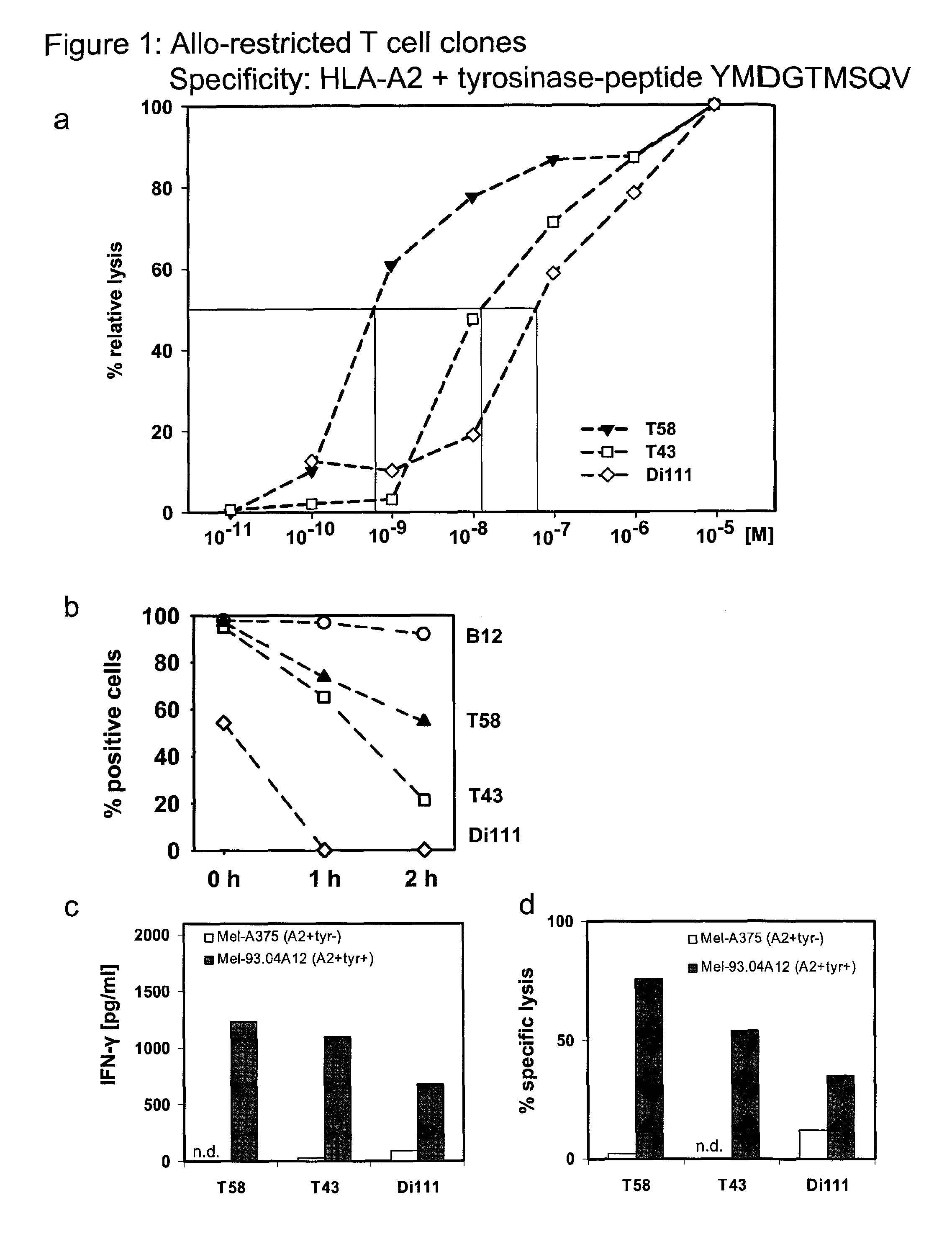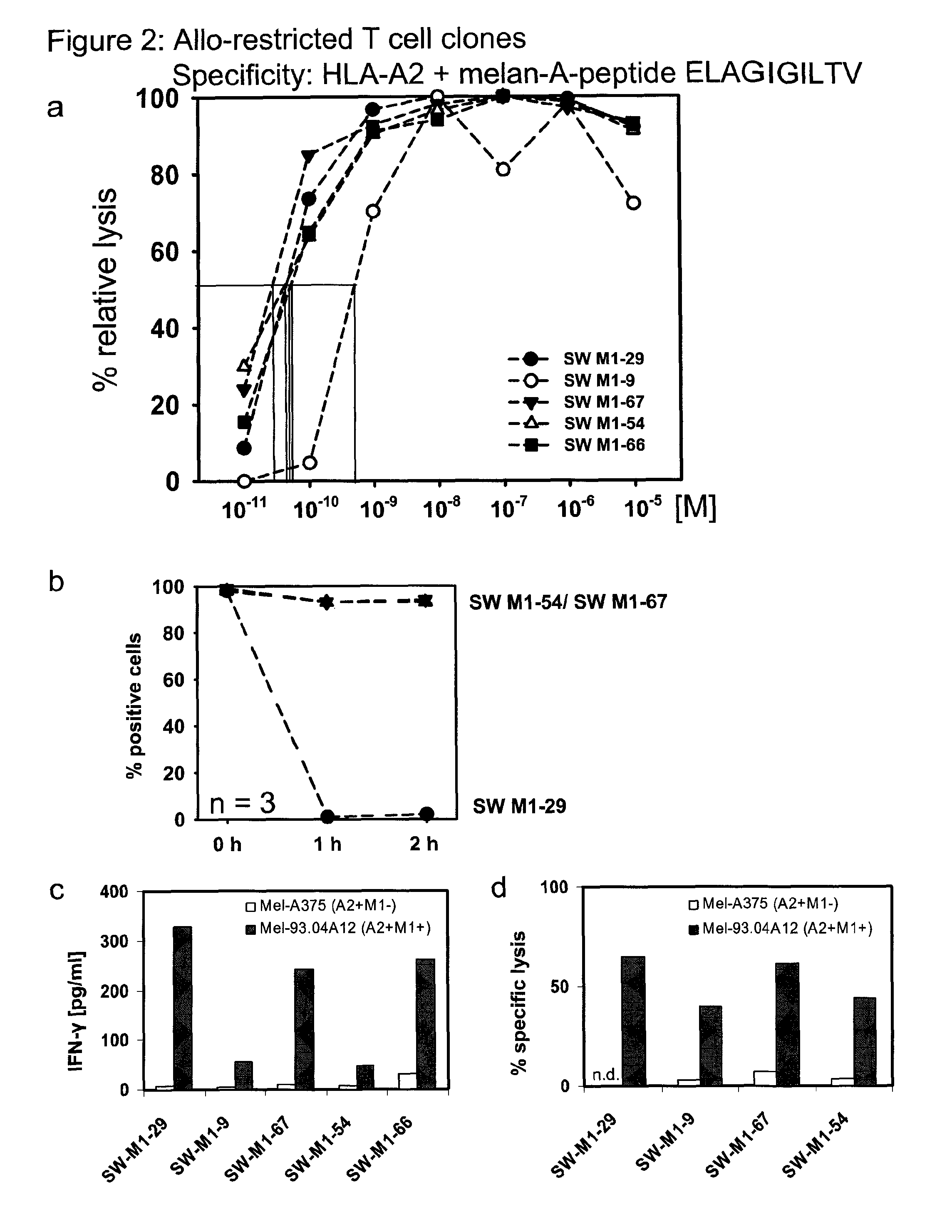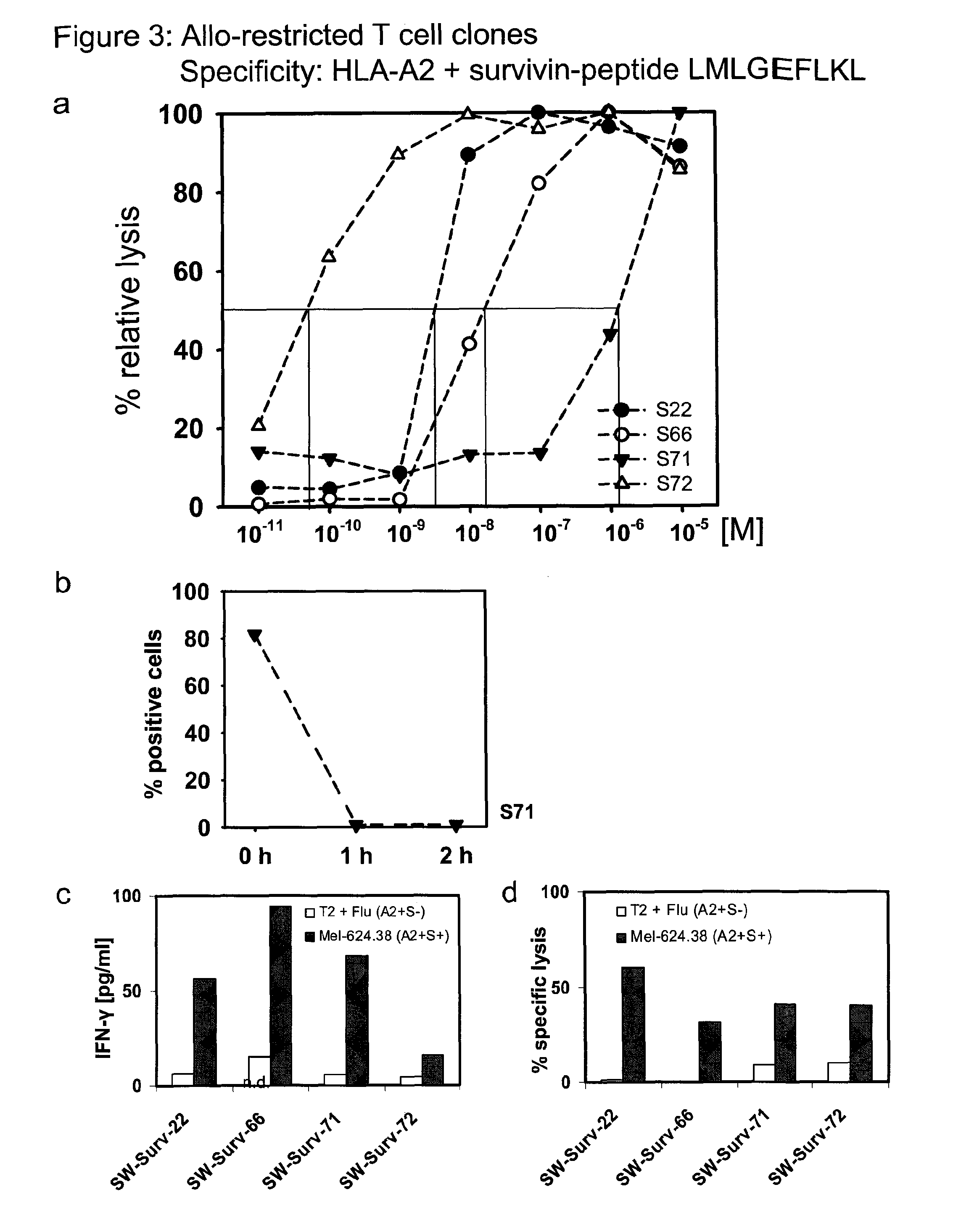Repertoire of allo-restricted peptide-specific T cell receptor sequences and use thereof
a t cell receptor and allo-restricted technology, applied in the field of t cell receptor sequences of allorestricted peptides, can solve the problems of low-avidity of available tcr, inability to obtain t cells with appropriate specificity and function for effective tumor elimination, and inability to meet the needs of patients with rapidly progressing tumors, etc., to achieve effective recognition and defeat, minimize immune selection of tumor cells, and eliminate the effect of malignancies
- Summary
- Abstract
- Description
- Claims
- Application Information
AI Technical Summary
Benefits of technology
Problems solved by technology
Method used
Image
Examples
examples
[0119]To isolate high-avidity T cells bearing TCR that recognize peptides presented by allogeneic major histocompatibility complex (MHC) molecules (i.e. allo-restricted T cells) and efficiently kill tumor cells with corresponding ligands, autologous dendritic cells (DC) obtained from HLA-A*0201-negative healthy donors were used for T cell priming following co-transfection with RNA encoding allogeneic HLA-A*0201 molecules and RNA encoding a selected TAA. Tyrosinase, melan-A and survivin were selected as the TAA; these are self-proteins that are often over-expressed in melanomas, and in the case of survivin many other types of tumors, and serve as examples of common tumor-associated antigens (TAA). DC were used to prime purified, autologous CD8+ T cells using two rounds of stimulation with freshly prepared RNA-pulsed DC. Prior to activation and after stimulation, the frequency of CD8+ T cells with TCR recognizing HLA-A2-peptide complexes was measured using HLA-multimers. Double-positi...
PUM
| Property | Measurement | Unit |
|---|---|---|
| volume | aaaaa | aaaaa |
| nucleic acid | aaaaa | aaaaa |
| affinity | aaaaa | aaaaa |
Abstract
Description
Claims
Application Information
 Login to View More
Login to View More - R&D
- Intellectual Property
- Life Sciences
- Materials
- Tech Scout
- Unparalleled Data Quality
- Higher Quality Content
- 60% Fewer Hallucinations
Browse by: Latest US Patents, China's latest patents, Technical Efficacy Thesaurus, Application Domain, Technology Topic, Popular Technical Reports.
© 2025 PatSnap. All rights reserved.Legal|Privacy policy|Modern Slavery Act Transparency Statement|Sitemap|About US| Contact US: help@patsnap.com



